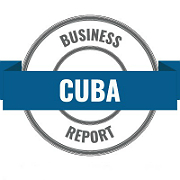Last Friday, the “Through Cuban Eyes” Forum took place at the University of the District of Columbia in Washington. The Forum was the final event of the second “Days of Action against the Blockade of Cuba” organized by the International Committee of Peace, Justice and Dignity. The event was organized by the International Committee with the assistance of IFCO/Pastors for Peace, the National Network on Cuba, the Institute for Policy Studies and the Venceremos Brigade.
A few of the speakers from Cuba were not able to attend because their visas, while not being denied by the United States government, were simply “not processed.” Whether this is actually a “tactic,” and “by-product” of US policies, it is difficult to think otherwise.
Visas were “not processed” for two Cuban doctors who had been to West Africa in Cuba’s efforts to assist with the Ebola crisis and also for Luisa Campos, Director of the Havana Literacy Museum. Luisa Campos has visited the US before so it should not have been a major task to process her visa with a computer.
However a visa was obtained for journalist Jorgito Jerez who spoke at the event, but it was processed too late for him to take participate in the first part of his journey to the US. He was forced to take a last minute (and every expensive flight) from Cuba and missed the first part of his tour.
“Through Cuban Eyes” was attended by an audience of more than 175 people from the United States, Cuba, Canada, Germany and Brazil.
Alicia Jrapko from the International Committee was the evening’s moderator. Panel guests included Drs. Alicia Steele and Vanessa Avila, graduates of the Latin American School of Medicine (ELAM), Jose Pertierra, a Cuban immigration attorney, Stephen Kimber, author and Canadian Professor of Journalism from the University of King’s College in Halifax. Notes of solidarity were read by Joe Cassidy from the National Nurses United and Nefta Freeman, Director of the Institute for Policy Studies. José Ramón Cabañas, Ambassador of the Cuban Embassy in Washington concluded the evening.
Drs. Alicia Steele and Vanessa Avila described their experiences of studying in medicine in Cuba and compared the differences in health care in Cuba and the U.S. They also spoke of the new medicines developed by Cuba for patients with diabetes and lung cancer.
Young journalist Jorgito Jerez discussed the effects of the US blockade on Cuban youth. “President Obama geared his talk to generational change. I come to say to friends of Cuba that when Obama spoke about Cuban youth he was wrong. It is no secret that the President and his advisers, even some politicians, say that the blockade will end when the historic leadership of the revolution is gone. One of the sectors most affected by the policy of the blockade are young people.”
Panelists discussed the reality of the US embargo against Cuba from the Cuban perspective. The Forum also spoke of Cuban Adjustment Act, regime change programs still in effect and what is to be done in order to normalize relations between the US and Cuba.
José Ramón Cabañas, Ambassador of the Cuban embassy in Washington concluded the evening. He spoke of President Obama’s recent visit to Cuba. He challenged any country in the world to organize a program for one of Cuba’s leaders like the one Cuba had organized for Obama. Obama had the opportunity to speak freely and openly to an audience of Cubans and his speech was broadcast live throughout Cuba.
Mr. Cabañas concluded that, “One thing I want to emphasize the blockade is still in place. … The core issues are still there. Large regulations and limits have to be overcome if we really want to have a normal relationship with the United States. … The sanction regime from 1962 and what the Helms-Burton law established – by the way, 30 years ago this year – is still there.”

From our staff writers and editors.









